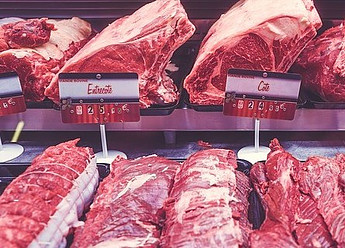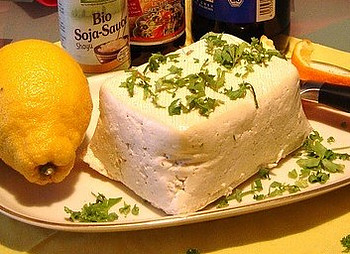The what is ‘meat’ question is fast becoming a controversial topic.
 Plant-based food production with the scope of meat substitution is gaining momentum but the question of “can it be called meat” has stirred up a lot of discussion.
Plant-based food production with the scope of meat substitution is gaining momentum but the question of “can it be called meat” has stirred up a lot of discussion.
More and more supermarket shelves are now displaying these alternative foods as the consumer demand generated for these meat like products is growing.
These products are now causing a storm with regard to the definition of what is meat and how they should be labelled, in particularly in the United States.
Foods that are harvested from livestock or poultry has become the definition of what constitutes “Meat”
In the month of August 2018, Missouri passed a law preventing food producers from marketing products as meat if the food does not come from harvested livestock or poultry, becoming it the first state to do so. More states are anticipated to follow.
The law will apply to products with meat substitutes including soy and plant based meat as well as the new genre of “clean meat” which are products grown from stem cells in laboratory establishments.
A fine of $1,000 or up to a year in jail will be enforced if companies fail to comply with the new rules and laws.
The industry of theses new plant-based alternatives and clean meat products are taking up the fight and have plans in place to sue the state. This is not the first time that these rulings have occurred as France banned the use of meat and dairy-related terms on vegan and vegetarian plant-based alternatives in April 2018.
The Missouri Cattlemen’s Association and other supporters of the law commented saying that these new alternative products were confusing to consumers and just needed to work on promoting their products with appropriate information of what the actual item is.
“All we’re saying is market with integrity. Make sure consumers know what they’re buying for their families,” Missouri Cattlemen’s Association Vice President Mike Deering said.
“There’s no gripe or issue with laboratory-grown products, no issue with the plant-based products, just be honest with consumers and make sure the customer can go to the grocery store with confidence and know what they’re buying.”
“In the United States we have some companies advertising products like chicken fingers and you just don’t see [on the label] that it’s plant based.”
Using the constitution to fight
One of four organisations taking up the fight on the wording of meat is The Good Food Institute.
Policy director Jessica Almy said the decision is in breach of the first amendment and is accusing the law decision as stifling the competition and creating an unbalanced market place.
“We’re suing the state to get this law deemed unconstitutional because it violates the US constitution including the violating of our first amendment right to free speech,” Ms Almy said.
“The government doesn’t have a right to come in and censor the words that can be used on labels.”
“The labelling is already clear which meat products were from animals and which were plant-based,” Ms Almy said.
“Our main concern is that the government is coming in and restricting the words that can be used on packages without any evidence that there’s consumer confusion.”
The growing industry of Meat Substitute products
 Last year, retail sales of meat substitutes in America were recorded to be worth about $US705 million. These figures are expected and forecast to climb to around $US800 million by year 2022.
Last year, retail sales of meat substitutes in America were recorded to be worth about $US705 million. These figures are expected and forecast to climb to around $US800 million by year 2022.
As these products gain a foot hold into the market place Ms Almy is claiming that the state’s decision of implementing the law was an attempt to slow down competition from the fast-growing industry.
Ms Almy highlights,
“Representative Jeff Knight, who was one of the sponsors of the bill, wasn’t afraid to disclose its real purpose,”
“This is a quote from the discussion when they were passing the legislation ‘all we’re trying to do is basically just protect our meat industry’.
“So the state of Missouri is passing this law that restricts free speech in order to privilege one set of producers over another.” Ms Almy said.
Another comment from Mr Deering, insisted the new law did not stifle competition.
“We want these businesses in Missouri and we’re proud to have them, creating jobs and doing good things,” he said.
“All we’re saying is market with integrity. To say that it’s violating your first amendment rights, just doesn’t add up.
“You can’t sell a Corvette as a Porsche can you? So why should you be able to sell a wheat-based hamburger patty as beef?”
An Introduction of Lab meat
Silicon Valley start-up Impossible Food sells its plant-based bleeding burger in over 1,000 US restaurants.
“What really prompted the legislation was the laboratory-grown products,” he said.
“On the chicken side, those products are hitting the shelves this year and in 2020 the so-called beef products are going to be hitting the shelves,” Mr Deering said.
“In Washington DC you’re having a huge debate in Congress on who regulates these products.”
“This is a whole new ball game, what’s the food safety protocols, what are the nutritional aspects of these products.”
The term “Meat” Ownership?
Similar Legislation on the word, meat and its usage in food labeling, is now popping for similar consideration at the federal level.
The meat term ownership is going to be a huge fight.
“We have this law that’s passed — there’s also a petition pending before our Department of Agriculture to make a policy that plant-based and clean-meat products can’t use these words on their labels,” Ms Almy said.
“Soon we’re going to see clean meat products, which are real animal meat made from animal cells, but don’t involve slaughter.”
“The question there, is if you can’t call those meat, how would you refer to them in the marketplace so consumers know what they’re buying?”
Better labelling information
I will get to my thoughts at the end but here’s a little info for you about Australian Standards.
As a butcher that has worked in the industry for more than 30 years in Australia and overseas, I can remember when we were having an industry discussion on what can a sausage can be advertised and sold as in the terms of species originality.
 Many Australian consumers are not aware that there are strict guidelines and laws that state sausages that are made from a mixture of species, such as lamb, mutton, beef and pork fat are only allowed to be sold as BBQ sausages. Even if, the majority percentage of the product is beef it is illegal to call the sausage a beef sausage. Only sausages that are made with 100 percent meat of the species, whether it be lamb, beef, pork or other game, can it then be advertised and sold as the species sausage such as beef sausages, lamb sausages etc.
Many Australian consumers are not aware that there are strict guidelines and laws that state sausages that are made from a mixture of species, such as lamb, mutton, beef and pork fat are only allowed to be sold as BBQ sausages. Even if, the majority percentage of the product is beef it is illegal to call the sausage a beef sausage. Only sausages that are made with 100 percent meat of the species, whether it be lamb, beef, pork or other game, can it then be advertised and sold as the species sausage such as beef sausages, lamb sausages etc.
The same laws also apply to minced meat. Mixed species mince can only be sold as hamburger mince and beef mince can only be made with 100 percent beef and so on.
If you buy a beef burger then you can be assured that the meat in the burger is only beef and no other species for the serving establishments do not want to pay heft fines or tarnish their reputations. Actually it is a great marketing point for them.
In Australia every year and more than once a year local health department officers go to registered manufactures or butchers and take sample tests to not only check that the products follow the Food Health and Safety laws but also to spot test on the species originality of the labelled products.
If companies are found to be in breach of these laws they are severely fined and punished. They are also ordered to make a recall of the tested batch that did not conform and the media stories can cause reputation ramifications that can cause financial issues for a well-established company.
Just a few years ago the labelling standards have gone up another notch with defining Country of origin details of products as some companies were using imported pork, wrapped around Australian pork bones and then labelling the finished ham product as an Australian origin ham. Labelling now must comply stating that the product is manufactured in Australia but may contain imported ingredients. This is not only for meat but now covers a whole spectrum of foods.
Many Australian consumers have voiced that they want to know product originality so that they can make an informed decision on whether to buy 100 percent Australian made or other. Label laws and product label information have come along way throughout my career as a butcher and I think that this is a good thing.
My thoughts on the word of ‘meat’ for plant-based products
I think that it is wonderful that industries are producing and manufacturing alternative foods as the number of consumers are always searching and wanting to understand more about the foods they want to eat and enjoy. I have no problem with people not eating meat and I have many friends and colleagues that chose to do so.
What I can’t understand though is, if people don’t want to eat meat why do they need the wording of the product to be meat! They obviously don’t want or can’t eat meat for whatever reason, health reasons or choice, so call these products what they are. Either Tofu Loaf, plant-based sausage, or soy bean sausages, minced soy bean for spaghetti bolognese and so on.
They will still have the option of having an alternative at Christmas or Thanksgiving but why call it Tofu Turkey when it isn’t Turkey at all. Why not just call it Tofu Thanksgiving Roast?
Now to my thoughts on the new genre “clean meat”
Clean meat is also called Cultured meat, synthetic meat or in vitro meat, that is meat grown from in vitro animals cell culture instead of from slaughtered animals.[1] It is a form of cellular agriculture. Wikipedia
 I think the new alternative protein food industry likes the softened “Clean Meat” name as it is great for marketing and gives the impression that the product could be superior to normal meat. (My opinion only)
I think the new alternative protein food industry likes the softened “Clean Meat” name as it is great for marketing and gives the impression that the product could be superior to normal meat. (My opinion only)
To make clean meat you actually need a real animal so I think this is a tough one when it comes to the question of ‘is it OK for it to be called meat’? Read below also from Wikipedia
“The initial stage of growing cultured meat is to collect cells that have a rapid rate of proliferation. Such cells include embryonic stem cells, adult stem cells, myosatellite cells, or myoblasts. Stem cells proliferate the quickest, but have not yet begun development towards a specific kind of cell, which creates the challenge of splitting the cells and directing them to grow a certain way. Fully developed muscle cells are ideal in the aspect that they have already finished development as a muscle, but proliferate hardly at all. Therefore, cells such as myoblast cells are often used as they still proliferate at an acceptable rate, but also sufficiently differentiate from other types of cells.
The science for cultured meat is an outgrowth of the field of biotechnology known as tissue engineering.[56]”
So what should it be called? I think it is still meat as the cell structure is from an animal, but again I still think that proper correct labelling needs to play a part to give the consumer all the information so they are able to make and educated informed decision. I believe there should be some information on the label that indicates the product has been manufactured not by conventional processes but produced in an artificial environment and an artificial process.
People just want and need to be informed so that they can make their own decision. I have eaten plant-based proteins and they tasted fine to me and I believe there is room in the market place for these new products. I haven’t tried a cultured burger yet but when I get the chance I will surely give it the taste test.
It will be interesting to see how the alternative foods industry fairs with the suing of the state of Missouri over the law and I will be watching as it pans out and for the result that will be given. It sounds like a tough fight.
I am pretty sure that I am impartial to nothing but a good piece of steak for the sheer taste and enjoyment but as mentioned above, I have no issues with what ever people decide what they want to eat and I hope they feel the same way as to my preference. I think the majority of people feel the same.
Let me know your thoughts with a comment on my interesting article, I’d love to hear it.
John